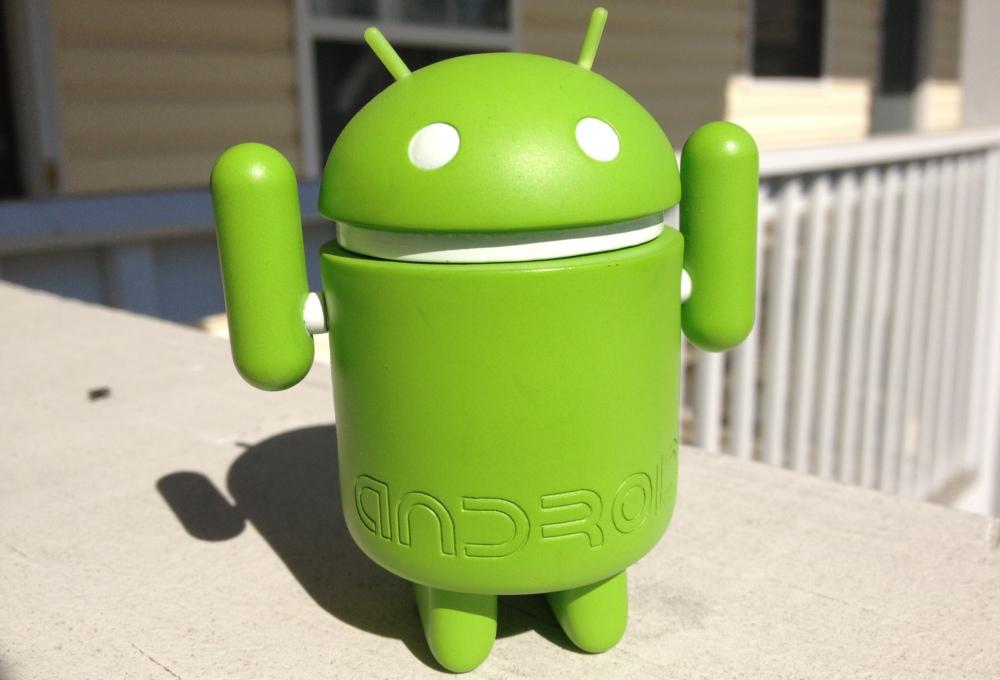
Android is wildly popular. Over the past three years, it has spread like a wildfire, dominating the shelves of national, regional and pre-paid carriers around the world. Android devices come in all shapes and sizes, in various price points and from a handful of different manufacturers. And it's a chameleon. As Amazon showed the world with the popular Kindle Fire, an Android device doesn't have to be just like the rest or use Google services to succeed.
Android, however, is not directly profitable for Google. Unlike Microsoft, who mandates how their software is used and charges manufacturers a licensing fee per use (which is believed to range from $23 to $31), Android is an open-source operating system that Google offers totally free of charge. And, as long as they abide by a few loose guidelines, can alter the software as much as they like while still offering Google services, like Gmail, Play Store, etc.
That said, while Google doesn't make money off of Android sales directly, the platform is a mobile portal to the various services Google offers. In turn, that translates to cash. And lots of it (sort of).
Once other tech companies saw the explosion created by Android and realized just how large of a cash cow it would be, the target of Google's back began to grow. Sifting through piles of patents, lawsuits from Apple and Microsoft started coming down on Google's hardware partners. And one, Oracle, sued Google directly over Android and its use of "Java-related intellectual property" in August 2010.
Since then, there has been little said of the lawsuit – that is, until this week. Monday morning, the two Silicon Valley giants took to the court room to (attempt to) settle their score. Earlier today, Oracle completed its cross-examination of Google CEO Larry Page reports The Verge. "Page was quite candid about Android's importance to Google as a whole," says The Verge's Matt Macari. When Page was asked whether he thought Android was a "critical asset" to Google in 2010, his response was rather surprising:
"I believe Android was very important for Google. I wouldn't say it was critical."
Page was later asked "whether Google's board of directors was told that Android was critical to Google." He explained that he wouldn't be surprised if that was the case. But he played it down, saying Android was (and still is) simply a "delivery vehicle" for pre-existing Google services to mobile users.
Since the original report, Page has been under a bit of scrutiny from journos and Android fans around the Web. Playing Android down, saying it isn't critical to Google could negatively affect relations with their hardware partners, which has been on the fritz more than once in the past. Three of Android's largest hardware manufacturers – HTC, Samsung and Motorola – have all shown interest in leaving Android for alternative operating systems that would get them out of the line of fire (Apple's and Microsoft's endless barrage of lawsuits).
Not only that, but Page's comment puts off an air of complacency, as if Google doesn't need Android, or that there are no alternatives. Maybe they need Android, but it certainly plays an important role. Our own David Beren of DroidDog says:
"Page will likely take some heat for his comments, but he may be right, Android on its own, as an OS isn’t nearly as important as the means with which Android allows Google services into the hands of users."
There is no question that Android can and will earn Google a lot of money over the next decade. As the important of mobile Web grows over the next few years, Android could be Google's most important asset. Microsoft and Apple both have their own alternatives to Google services (iCloud, SkyDrive, Bing, Siri, etc.). Without Android, Google is hinging its entire mobile presence on support from competing platforms – ones that are already trying to cut the search giant out.
It's a bit of a cloudy situation, mainly because we don't have cold, hard numbers. Well, we do. But I'm not quick to take them for fact. Leading up to the trial, Google provided data that suggests they have only made $550 million in revenue from Android since 2008. Further analysis from Asymco suggests that Google makes more revenue per iOS device sold each year than they do Android.
An interesting perspective from LtRaziel, a commenter on The Verge, brings up a very interesting and convincing point, though. He suggests Google and Larry Page are playing down Android's importance to them to deflect the brunt of the suit. LtRaziel says:
"Take whatever Google is saying about Android’s value in the trial with a huge grain of salt. They are trying to downplay it so even if Oracle wins, they don’t have to give them a lot of money.
This is why from the beginning they said Android itself doesn’t make any money. So they don’t have to give Oracle anything for Android, because it’s free. and [sic] advertising is an entirely separated business. It’s also why they only “calculated” they can only settle with Oracle for $3 million per year.
So yeah. Don’t expect Google to brag about how valuable Android is to them in the trial."
This seems far more likely than Google throwing the startup they acquired in 2005 under the bus and sincerely meaning it isn't critical to their business. Google's primary business is search and ad revenue, but Android is their most secure means of distributing these services to mobile, a rapidly growing force in the online world.
What say you, readers? Should Google give Android more credit? Or is Page & Co. feigning the true importance of Android to elude the possible damages of the Oracle suit? How could a loss of Android affect Google in the long run, especially in the mobile world?